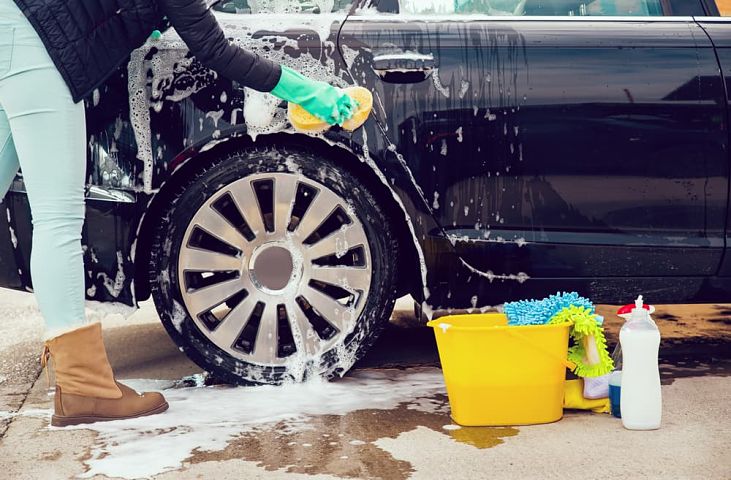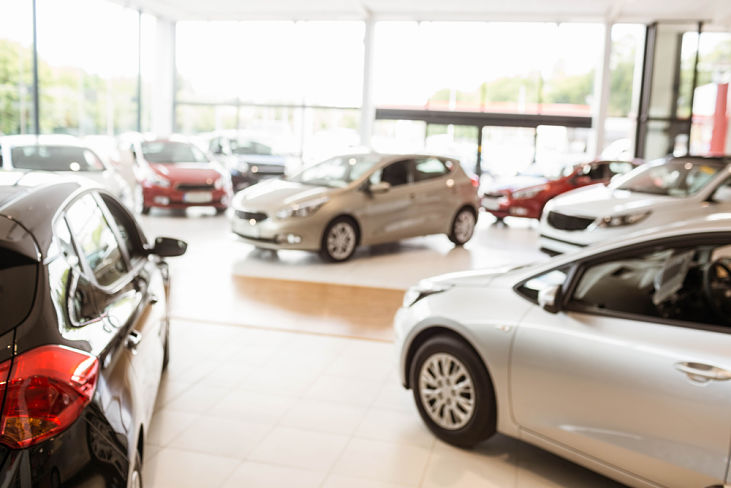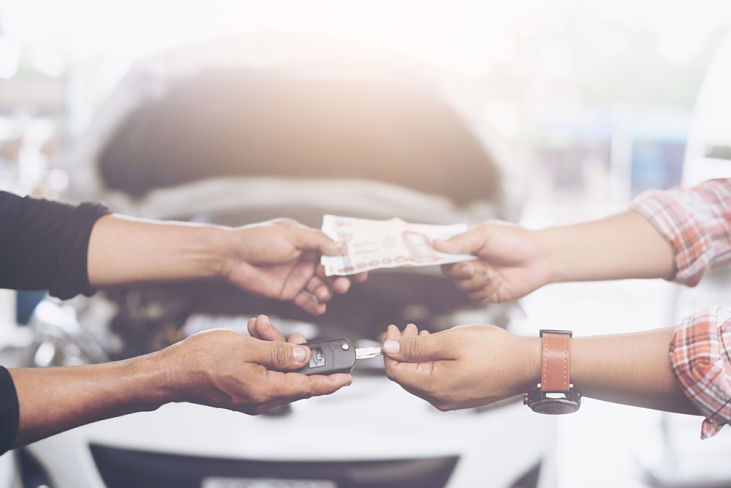
Selling your car can be a stressful experience. Your vehicle is one of your most significant assets, and receiving top dollar is essential for your financial health. Additionally, sorting through offers can make your head spin. So what are the most important things to look for in a potential buyer?
In today's modern, connected world, you can use various impersonal methods to sell your car. However, selling the vehicle person-to-person typically still results in the highest sale price. You need to determine whether the trade-off in time and stress is worth the marginally more considerable amount of money at the sale and get a car bill of sale to make a legal sale and tranfers of the vehicle.
Currently, the market for used cars is beneficial for sellers. Anything with a motor is fetching a premium price. However, every sale is different, so be prepared to be thorough. Some basic negotiation tactics can help result in driving up the price of your auto. The following step-by-step plan can provide you with a blueprint for ensuring a successful sale of your car.
What Papers Do You Need to Sell a Car?
Successfully selling your car will first require you to get your documents in order. Locate the title to your vehicle, also known as a pink slip. The title gives you the legal rights of ownership of the property, so make sure it is kept in a safe place until it is signed over to a new buyer.
Read more: How to transfer a car title
You will also need to contact your state's Department of Motor Vehicles (DMV, also known as the Bureau of Motor Vehicles in some states). The DMV will have updated records on your vehicle and information on what paperwork, taxes, and fees are required to transfer the car's title. There will also be a guide for what to do with your license plates upon sale.
Most buyers will request a vehicle history report, so it is advisable to secure one now. That way, there are no surprises that can ruin negotiations down the line.
Once it is time to sell, you will need to prepare a bill of sale. The bill of sale is a legal document that memorializes the transfer of your vehicle, including the price, date, and any conditions. Think of it as a fancy receipt. You may find an example of a DMV bill of sale online. Depending on the terms of the deal, you may also be signing an as-is bill of sale. Or, you may offer some limited warranties on the vehicle.
1. Prepare Your Car for Sale
Keeping your car clean can go a long way to securing the best sales price. Think of it as curb appeal for your car. It can be worth paying for an auto detailing service, but at the very least, wash and vacuum out your vehicle before showing potential buyers.

2. Choose a Marketplace
There are three leading marketplaces for the sale of used cars. Each one has its own pros and cons.

Trade-In at the Dealer
If you purchase a new car to replace the vehicle you are selling, most dealerships will offer trade-in credit for your old ride. While rarely the best price, trading in with the dealer can be the most convenient. The dealership will handle all the paperwork and logistics of the sale. But, in addition to not being top dollar, trade-in credit is handled through financing and does not end up with a lot of cash in your hands.
Online Instant Offers
Numerous companies have popped up that promise no-hassle or haggle instant cash offers. First, you provide them with some of the basics of your car, including VIN, license plate number, mileage, and condition, and then they give you a cash offer within moments.
While the offers may be fair, like going to a dealership, you rarely receive top dollar. Because the buyer is looking to immediately resell the car, they need to leave room for profit.
Sell the Car Yourself
Finally, you can sell the car yourself, person-to-person. While this step requires the most legwork, it can end up landing you the most money. However, there are risks to this marketplace. Buyers may not be who they say they are, or your car can languish on the market for weeks to months.
From painting a price and your phone number on the side windows of your car to placing ads on craigslist and other sites, there are numerous ways you can tackle selling your vehicle yourself. First, however, marketing is all on you.
3. Screen Your Possible Buyers
At this point is important to know who is an honest and potential buyer, because you may receive many inquires from people, this could be because you may have set the price too low. These flippers are trying to squeeze you into a quick sale at a disadvantageous price.
If you are sure of the price, screening buyers must be done carefully and should be easy if you follow these steps.
- Ask the full name, if you don't receive it could be the first warning
- Ask the payment methods in order to be sure is safe
- No payment plan, this can be risky but if you accept, sign a contract like a promissory note

4. Set up Test Drive
Serious buyers - as in non-flippers - are going to want to test out the car. But be careful when scheduling a test drive. You may want to meet in a public place with lots of people around. Do not willingly give out your home address.
This may seem obvious but be sure to ride along during the test drive. Some buyers may have a mechanic they want to inspect the vehicle. This should be done on the buyer's time and at their expense.

5. Close the Deal
The first offer is never the final offer. Negotiate! Expect a buyer's initial offer to be below your asking price. Be prepared to make a counteroffer while maintaining that you believe your price is fair.
Once you have agreed on a price, finish the sale by signing a car bill of sale, and by discussing the paperwork and logistics of transferring the money and keys. You may want to meet back in public but remember you will need a ride home!

Seller's Checklist
Getting paid is the essential step in selling your car. However, generally large sums of money are usually involved, and rarely is it all in cash. Be wary of anyone looking to use an escrow service or paying by personal check and add a statute of fraud. A best practice may be to transfer the title at the buyer's bank. They can withdraw a cashier's check for the sale price, and you can sign the pink slip right there.
LawDistrict.com has easy-to-use contract maker tools to create a bill of sale for your car. Follow our step-by-step guide to draft a bill of sale tailored to your needs, whether as-is or with limited warranties.
Selling your car can be a stressful experience. Your vehicle is one of your most significant assets, and receiving top dollar is essential for your financial health. Additionally, sorting through offers can make your head spin. So what are the most important things to look for in a potential buyer?
In today's modern, connected world, you can use various impersonal methods to sell your car. However, selling the vehicle person-to-person typically still results in the highest sale price. You need to determine whether the trade-off in time and stress is worth the marginally more considerable amount of money at the sale and get a car bill of sale to make a legal sale and tranfers of the vehicle.
Currently, the market for used cars is beneficial for sellers. Anything with a motor is fetching a premium price. However, every sale is different, so be prepared to be thorough. Some basic negotiation tactics can help result in driving up the price of your auto. The following step-by-step plan can provide you with a blueprint for ensuring a successful sale of your car.
What Papers Do You Need to Sell a Car?
Successfully selling your car will first require you to get your documents in order. Locate the title to your vehicle, also known as a pink slip. The title gives you the legal rights of ownership of the property, so make sure it is kept in a safe place until it is signed over to a new buyer.
Read more: How to transfer a car title
You will also need to contact your state's Department of Motor Vehicles (DMV, also known as the Bureau of Motor Vehicles in some states). The DMV will have updated records on your vehicle and information on what paperwork, taxes, and fees are required to transfer the car's title. There will also be a guide for what to do with your license plates upon sale.
Most buyers will request a vehicle history report, so it is advisable to secure one now. That way, there are no surprises that can ruin negotiations down the line.
Once it is time to sell, you will need to prepare a bill of sale. The bill of sale is a legal document that memorializes the transfer of your vehicle, including the price, date, and any conditions. Think of it as a fancy receipt. You may find an example of a DMV bill of sale online. Depending on the terms of the deal, you may also be signing an as-is bill of sale. Or, you may offer some limited warranties on the vehicle.
1. Prepare Your Car for Sale
Keeping your car clean can go a long way to securing the best sales price. Think of it as curb appeal for your car. It can be worth paying for an auto detailing service, but at the very least, wash and vacuum out your vehicle before showing potential buyers.

2. Choose a Marketplace
There are three leading marketplaces for the sale of used cars. Each one has its own pros and cons.

Trade-In at the Dealer
If you purchase a new car to replace the vehicle you are selling, most dealerships will offer trade-in credit for your old ride. While rarely the best price, trading in with the dealer can be the most convenient. The dealership will handle all the paperwork and logistics of the sale. But, in addition to not being top dollar, trade-in credit is handled through financing and does not end up with a lot of cash in your hands.
Online Instant Offers
Numerous companies have popped up that promise no-hassle or haggle instant cash offers. First, you provide them with some of the basics of your car, including VIN, license plate number, mileage, and condition, and then they give you a cash offer within moments.
While the offers may be fair, like going to a dealership, you rarely receive top dollar. Because the buyer is looking to immediately resell the car, they need to leave room for profit.
Sell the Car Yourself
Finally, you can sell the car yourself, person-to-person. While this step requires the most legwork, it can end up landing you the most money. However, there are risks to this marketplace. Buyers may not be who they say they are, or your car can languish on the market for weeks to months.
From painting a price and your phone number on the side windows of your car to placing ads on craigslist and other sites, there are numerous ways you can tackle selling your vehicle yourself. First, however, marketing is all on you.
3. Screen Your Possible Buyers
At this point is important to know who is an honest and potential buyer, because you may receive many inquires from people, this could be because you may have set the price too low. These flippers are trying to squeeze you into a quick sale at a disadvantageous price.
If you are sure of the price, screening buyers must be done carefully and should be easy if you follow these steps.
- Ask the full name, if you don't receive it could be the first warning
- Ask the payment methods in order to be sure is safe
- No payment plan, this can be risky but if you accept, sign a contract like a promissory note

4. Set up Test Drive
Serious buyers - as in non-flippers - are going to want to test out the car. But be careful when scheduling a test drive. You may want to meet in a public place with lots of people around. Do not willingly give out your home address.
This may seem obvious but be sure to ride along during the test drive. Some buyers may have a mechanic they want to inspect the vehicle. This should be done on the buyer's time and at their expense.

5. Close the Deal
The first offer is never the final offer. Negotiate! Expect a buyer's initial offer to be below your asking price. Be prepared to make a counteroffer while maintaining that you believe your price is fair.
Once you have agreed on a price, finish the sale by signing a car bill of sale, and by discussing the paperwork and logistics of transferring the money and keys. You may want to meet back in public but remember you will need a ride home!

Seller's Checklist
Getting paid is the essential step in selling your car. However, generally large sums of money are usually involved, and rarely is it all in cash. Be wary of anyone looking to use an escrow service or paying by personal check and add a statute of fraud. A best practice may be to transfer the title at the buyer's bank. They can withdraw a cashier's check for the sale price, and you can sign the pink slip right there.
LawDistrict.com has easy-to-use contract maker tools to create a bill of sale for your car. Follow our step-by-step guide to draft a bill of sale tailored to your needs, whether as-is or with limited warranties.
Most Popular Posts

If your minor child travels alone in the United States, you will most likely be required to complete documentation through the airline's...

An eviction filed by your landlord hurts your credit report. It is also held as a public record and other landlords can view your previous rental...